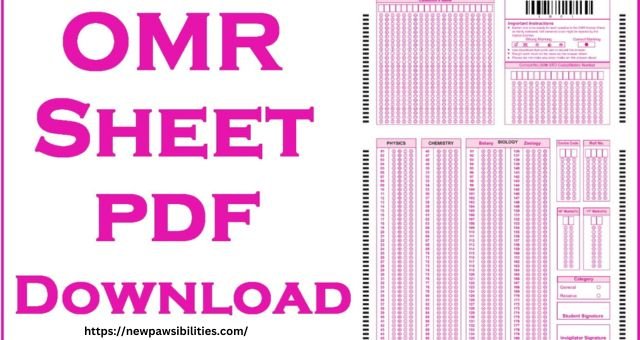Who is Eligible for GST Registration?

Goods and Services Tax (GST) has revolutionized the way businesses operate in India. GST is a comprehensive, multi-stage, and destination-based tax applied on every value addition. One of the core aspects of GST is registration. Any individual or entity engaged in the supply of goods or services in India is liable to register for GST if they meet certain eligibility criteria. But who exactly is eligible for GST registration, and how do you know if it applies to you?
Who is Required to Register for GST?
Threshold Limit for Registration
Any business whose aggregate turnover exceeds a specified limit must register for GST. As of now:
- For goods: The threshold is ₹40 lakhs.
- For services: The threshold is ₹20 lakhs.
If your business turnover exceeds this amount, you are required to register for GST.
Interstate Suppliers
Any business that supplies goods or services between different states in India must register for GST, regardless of the turnover. Even if your turnover is below the threshold limit, if you’re conducting interstate business, GST registration is mandatory.
Casual Taxable Persons
Casual taxable persons are those who occasionally supply goods or services in a taxable territory where they do not have a fixed place of business. For instance, if you’re an event organizer selling goods at a trade fair, you need to register under GST as a casual taxable person.
Non-Resident Taxable Persons
Non-resident individuals or entities providing taxable goods or services in India must register for GST. They don’t need to have a fixed place of business in India but must appoint an authorized person in India to handle GST compliance.
E-commerce Operators
E-commerce operators, such as those managing platforms like Amazon or Flipkart, must also register for GST. They are required to collect tax on behalf of the sellers who use their platforms.
Agents of a Supplier
Agents who supply goods or services on behalf of other businesses must register for GST, even if their annual turnover is below the threshold.
Input Service Distributors (ISD)
ISDs are businesses that receive goods or services from multiple suppliers and then distribute the input tax credit (ITC) to various branches. Such distributors must also register under GST.
Reverse Charge Mechanism
Under the reverse charge mechanism, the recipient of goods or services is liable to pay GST instead of the supplier. If your business is engaged in transactions under this mechanism, you need to register for GST.
Voluntary Registration
Even if your turnover doesn’t exceed the threshold, you can voluntarily register for GST. Many small businesses opt for voluntary registration to claim input tax credit or to increase their credibility with larger clients.
Exemptions from GST Registration
Not every business is required to register for GST. Some categories are exempt:
- Agriculturists supplying produce cultivated on their land.
- Businesses dealing in goods or services exempted under GST.
- Specific types of handicrafts, provided they meet certain criteria.
It’s essential to review your business’s nature and turnover to see if you qualify for exemption. Hire the best GST registration in Jaipur.
Benefits of GST Registration
Why should you register for GST, even if your turnover doesn’t exceed the threshold? Here are some key benefits:
- Input Tax Credit: Registered businesses can claim input tax credit on purchases.
- Legitimacy: It boosts the credibility of your business and helps attract larger clients.
- Interstate Business: You can legally supply goods and services across state borders.
- Avoid Penalties: Not registering for GST when required can lead to hefty fines and penalties.
Documents Required for GST Registration
Before starting the registration process, gather the necessary documents:
- PAN card of the business or applicant.
- Aadhaar card.
- Proof of business address.
- Bank account details.
- Digital signature.
- Certificate of incorporation (for companies).
The documents required may vary depending on the type of business entity (sole proprietorship, partnership, or company).
How to Register for GST?
GST registration can be done online through the GST portal. Follow these steps:
- Visit the GST Portal: Go to www.gst.gov.in.
- Fill the Application Form: Enter details like PAN, mobile number, email, and business type.
- Submit Documents: Upload the required documents mentioned above.
- Verification: After submission, you’ll receive an ARN (Application Reference Number) to track your application.
- Receive GSTIN: Once approved, you’ll be provided with a GSTIN.
Consequences of Not Registering for GST
Failing to register for GST when required can lead to severe consequences:
- Penalties: A penalty of ₹10,000 or the amount of tax evaded (whichever is higher).
- Legal Action: Continuous non-compliance can lead to prosecution.
- Loss of Input Credit: Without a GST registration, businesses cannot claim input tax credit, increasing their tax burden. For any queries, consult the best CA firm in Hyderabad.
GST Registration for Special Cases
Composition Scheme
Small businesses with turnover up to ₹1.5 crores can opt for the composition scheme. Under this scheme, businesses pay a reduced GST rate but cannot claim input tax credit.
Non-Resident Indians (NRI)
NRIs involved in the supply of goods or services in India must register for GST. The process is the same, but NRIs must appoint a local representative to handle their GST compliance.
GST Compliance After Registration
Once you’ve registered for GST, you need to maintain compliance:
- Monthly/Quarterly Returns: File regular GST returns based on your turnover and type of business.
- Invoicing: Issue GST-compliant invoices for every sale.
- Maintain Records: Keep records of all transactions, purchases, and sales for audit purposes.
Conclusion
GST registration is a critical step for any business involved in the supply of goods or services in India. Whether you’re a small business owner, an e-commerce operator, or an NRI, understanding the eligibility and process for GST registration ensures you stay compliant with the law and enjoy the benefits of a streamlined tax system.
FAQs
- Who is required to register for GST?
Any business with a turnover exceeding ₹40 lakhs (for goods) or ₹20 lakhs (for services) must register. Other categories like interstate suppliers, e-commerce operators, and casual taxable persons are also required to register. - Can I register for GST voluntarily?
Yes, businesses can opt for voluntary registration, even if their turnover is below the threshold. This can help them claim input tax credit and build credibility. - What documents are needed for GST registration?
Key documents include your PAN, Aadhaar, proof of business address, bank details, and a digital signature. - What happens if I don’t register for GST?
Not registering can lead to penalties, legal consequences, and loss of input tax credit. - Is the registration process for NRIs different?
NRIs need to appoint a local representative to handle GST compliance, but the process is otherwise similar to that for Indian residents.












